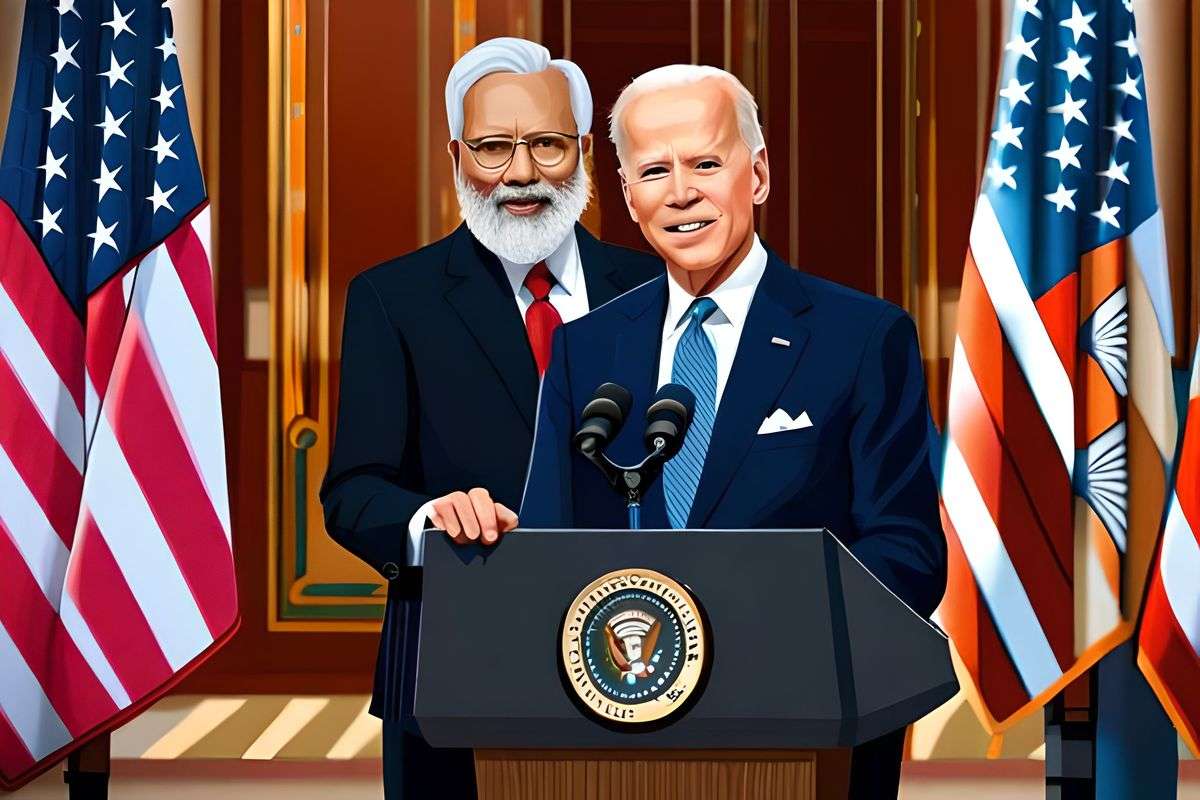Prime Minister Narendra Modi has faced both national and international criticism for refraining from addressing questions from the press since assuming office in 2014.
The White House disclosed that despite repeated requests from the Joe Biden administration for increased media access to the bilateral meeting between President Biden and Prime Minister Narendra Modi during the G-20 Summit, the Government of India chose to decline these requests.
This comes over two months after a CNN report indicated that the Indian side was initially reluctant about a press conference during Modi’s US state visit.
“This meeting will be taking place at the prime minister’s residence, so, it is unusual in that respect – this is not your typical bilateral visit to India, with meetings taking place in the prime minister’s office and an entire program,” national security adviser Jake Sullivan said on Thursday.
“This is the host of the G20 hosting a significant number of leaders — doing so in his home, and he set out the protocols he set out.”
Meanwhile, White House press secretary Karine Jean-Pierre told reporters on Thursday that the administration was “doing our darndest, doing our best” to ensure media access to the president during his India visit.
“A slew of officials, including Sullivan, White House communications director Ben LaBolt, deputy national security adviser Jon Finer, and deputy assistant to the president and coordinator for the Indo-Pacific Kurt Campbell all contacted their Indian counterparts to argue for more press access during the visit – to no avail, apparently,” according to a CNN report.
President Biden, who is attending the G-20 Summit in India, was set to hold a bilateral meeting with Prime Minister Modi at the Prime Minister’s Residence on Lok Kalyan Marg, prior to the summit. However, there will be no press conference associated with this meeting.
Furthermore, the Government of India also declined requests from the United States to organize a ‘press pool spray,’ a common practice when foreign leaders visit the White House.
Prime Minister Modi has faced criticism, both nationally and internationally, for his limited interactions with the press since taking office in 2014. He has conducted only occasional interviews and has not held a formal press conference during his nine years in office.
The sole instance where he took questions from the press was during the joint press conference with President Biden during Biden’s state visit in June.
US National Security Advisor Jake Sullivan explained that India is hosting the meeting and has established its own protocols, which do not include press engagement.
While the Biden administration had advocated for a press pool spray, the Modi government did not accept these requests.
A press pool spray typically involves a group of reporters having access to the two leaders just before their meeting, equipped with cameras and microphones, providing an opportunity for the leaders to make opening remarks and respond to media queries.
Such interactions frequently take place at the White House’s Oval Office when the President of the United States meets with foreign leaders.
White House Press Secretary Karine Jean-Pierre expressed the administration’s efforts to secure more media access during President Biden’s visit to India but noted that these attempts did not yield results.
President Biden will not hold a press conference in Delhi but will conduct one during his visit to Vietnam. According to Jean-Pierre, this decision was based on logistical considerations, as it was easier to organize the press conference in Vietnam.
Apart from the meeting with Prime Minister Modi, President Biden is not anticipated to have additional bilateral meetings. While there may be informal interactions with other leaders on the sidelines or brief pull-aside conversations, the schedule does not permit formal bilateral sit-down meetings.



